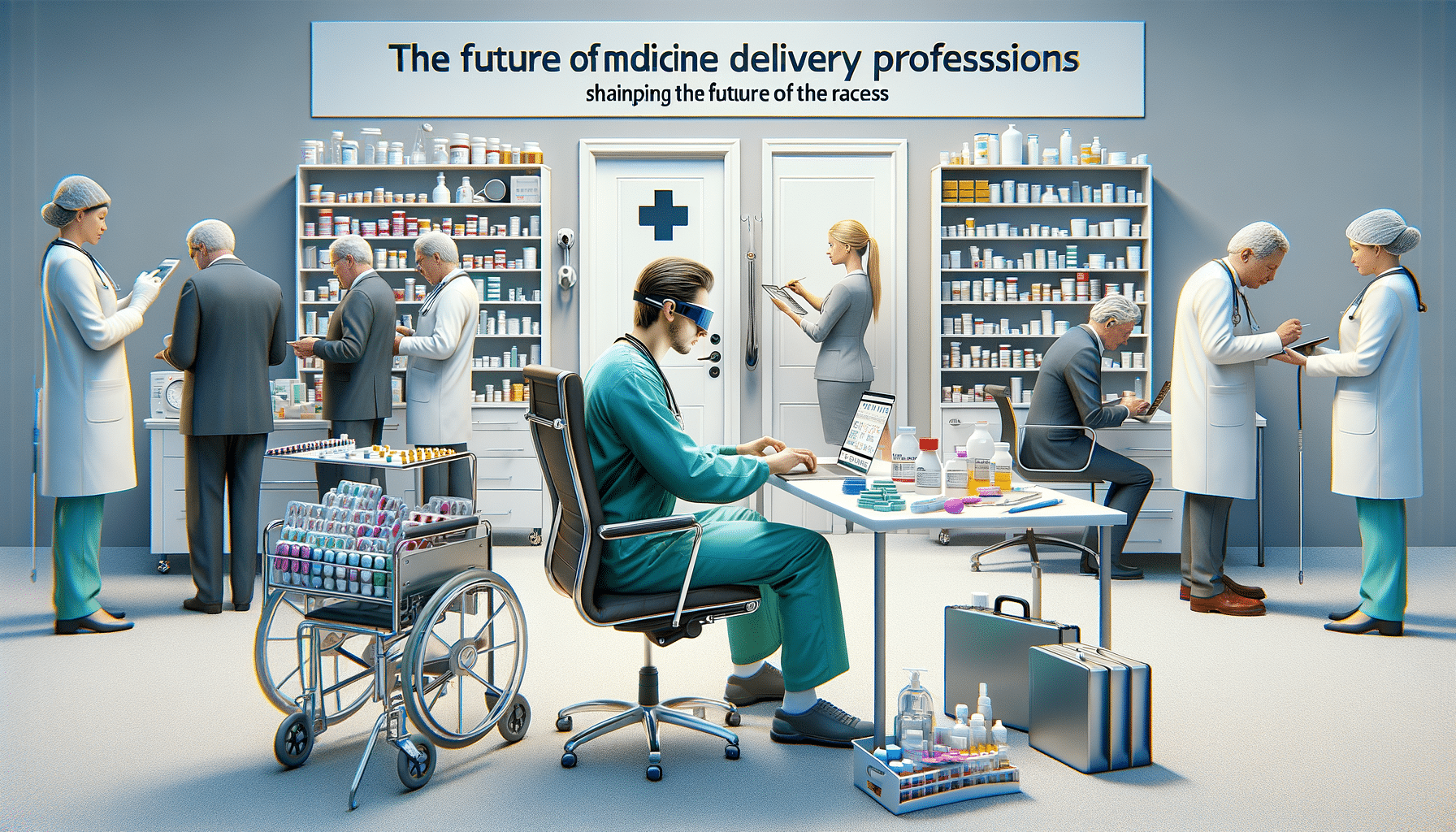
Driving Wellness: Why Medicine Delivery Jobs Matter More Than Ever
How Medicine Delivery Jobs Are Shaping the Future of Healthcare Access
In recent years, the healthcare sector has witnessed a significant transformation, driven in part by the rising demand for medicine delivery services. This shift is not just about convenience; it represents a crucial step towards increasing healthcare accessibility, especially for vulnerable populations. Medicine delivery jobs are pivotal in bridging the gap between healthcare providers and patients, ensuring timely access to essential medications.
One of the most profound impacts of medicine delivery services is seen in rural and remote areas, where healthcare facilities might be sparse. By providing a reliable means of delivering medications, these services ensure that individuals in these regions receive their prescriptions without the need for long and often cumbersome travel. This is particularly beneficial for the elderly and those with chronic conditions who may struggle with mobility.
Moreover, medicine delivery jobs contribute to reducing the strain on healthcare facilities. By streamlining the process of obtaining medications, they allow healthcare providers to focus more on patient care rather than logistical concerns. This efficiency is crucial in times of high demand, such as during flu seasons or pandemics, when healthcare systems are often overwhelmed.
In summary, medicine delivery jobs are not merely a convenience but a necessity in modern healthcare. They play a vital role in ensuring that everyone, regardless of their location or physical condition, has access to the medications they need to maintain their health and well-being.
Top Skills You Need to Succeed as a Medicine Delivery Driver
Being a medicine delivery driver requires a unique set of skills that go beyond basic driving abilities. As these professionals are responsible for handling sensitive and sometimes life-saving medications, they must possess certain qualities and competencies to perform their roles effectively.
Firstly, strong organizational skills are essential. Medicine delivery drivers need to manage multiple deliveries efficiently, ensuring that each package reaches its destination on time. This requires meticulous planning and the ability to adapt to changes in schedules or routes due to unforeseen circumstances.
Secondly, excellent communication skills are vital. Drivers often interact with patients, healthcare providers, and pharmacy staff, requiring clear and courteous communication. They must be able to convey information accurately and handle any queries or concerns that may arise during deliveries.
Additionally, a keen attention to detail is crucial. Medicine delivery drivers must ensure that the right medication is delivered to the correct recipient, adhering to privacy and safety regulations. This involves verifying patient information and understanding the importance of confidentiality in healthcare.
Lastly, a compassionate and patient demeanor is beneficial. Delivering medications often involves interacting with individuals who may be unwell or stressed. A kind and understanding approach can make a significant difference in the experience of those receiving the service.
In conclusion, succeeding as a medicine delivery driver requires a blend of organizational, communicative, and interpersonal skills, all of which contribute to the safe and efficient delivery of healthcare services.
A Day in the Life of a Medicine Delivery Professional
The day of a medicine delivery professional begins early, often with a visit to the pharmacy or distribution center where they collect the medications scheduled for delivery. Each package is carefully checked against the delivery list to ensure accuracy and completeness, as any error could have serious implications for patient health.
Once the packages are loaded, the driver sets out on their delivery route. This route is strategically planned to maximize efficiency, taking into account factors like traffic patterns and delivery time windows. Throughout the day, the driver navigates through urban and rural landscapes, ensuring each delivery is made safely and promptly.
Interactions with recipients vary; some deliveries are straightforward, while others may require additional assistance or explanation. For instance, elderly recipients might need help understanding dosage instructions, or a patient might have questions about their medication. The driver must be prepared to offer support and guidance within their scope of knowledge.
As the day progresses, the driver maintains communication with the dispatch team, updating them on delivery statuses and any issues encountered. This constant communication ensures that the delivery process runs smoothly and any problems are addressed swiftly.
At the end of the day, the driver returns to the pharmacy or distribution center to drop off any undelivered packages and complete necessary paperwork. This documentation is crucial for maintaining accurate records and ensuring accountability within the delivery process.
In essence, a day in the life of a medicine delivery professional is dynamic and rewarding, characterized by a commitment to ensuring that patients receive the medications they need, when they need them.


